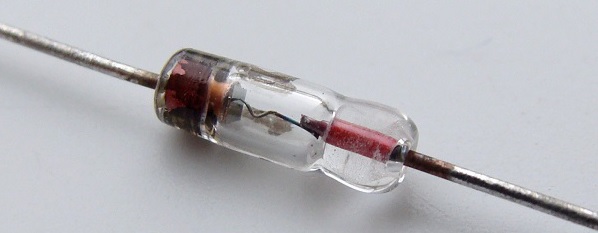
(Story concept courtesy of Dan Schnell)
Bobby excitedly ripped open the brown paper packaging of his long-awaited delivery. He got goosebumps as he laid out the different components of his do-it-yourself radio kit. The twelve-year-old young man shut himself in the work shed and meticulously set up his work area. He entertained the idea of tuning in to the different radio waves with his homemade device as he soldered the circuit board and branded the words "sound box" on the rough cedar casing. The dials were tight, and the power switch snapped on and off with a sharp *click*. Bobby licked his lips and anticipated the soft hum of electricity as he plugged in his new radio, but when he plugged it in, nothing happened. The lights did not come on, and the soft crackle of the airwaves was conspicuously absent. He flipped the power switch a few times, and even tried different electrical outlets to no avail. As Bobby regarded the useless radio and considered the hours he'd spent assembling it, he threw it to the ground and stomped on the casing, shouting as it crunched beneath his boot. After shedding a few tears of frustration, he picked up his ruined radio and began laying out the smashed components, trying to understand why his project had failed. Through checking and rechecking with the instructions, Bobby noticed a tiny diode that he'd soldered hours before. Wasn't the black side supposed to be soldered to the black wire? It was backwards! Bobby disconnected the little part and soldered it in the correct position, then connected the wiring to electricity. The speaker crackled and the plucking of a banjo permeated the atmosphere in the work shed. All because the tiniest part of the radio was inverted, the entire appliance had failed to function.
Ephesians 4:11-16
11 And He gave some as apostles, and some as prophets, and some as evangelists, and some as pastors and teachers,
12 for the equipping of the saints for the work of service, to the building up of the body of Christ;
13 until we all attain to the unity of the faith, and of the knowledge of the Son of God, to a mature man, to the measure of the stature which belongs to the fullness of Christ.
14 As a result, we are no longer to be children, tossed here and there by waves and carried about by every wind of doctrine, by the trickery of men, by craftiness in deceitful scheming;
15 but speaking the truth in love, we are to grow up in all aspects into Him who is the head, even Christ,
16 from whom the whole body, being fitted and held together by what every joint supplies, according to the proper working of each individual part, causes the growth of the body for the building up of itself in love.
As we consider the story of the diode, we must ask if we recognize ourselves in the account. Are we Bobby, who fails to see the backward diode? This would be the Christian who fails to recognize that someone in the congregation has an issue and needs our attention. Or are we the diode, a Christian who sees so many problems in the church and wonder why nothing works, while we are actually the source of the problem?
Let us work, both to be mindful of each part of the body, and to make sure that we are a faithful part of the body.
J
